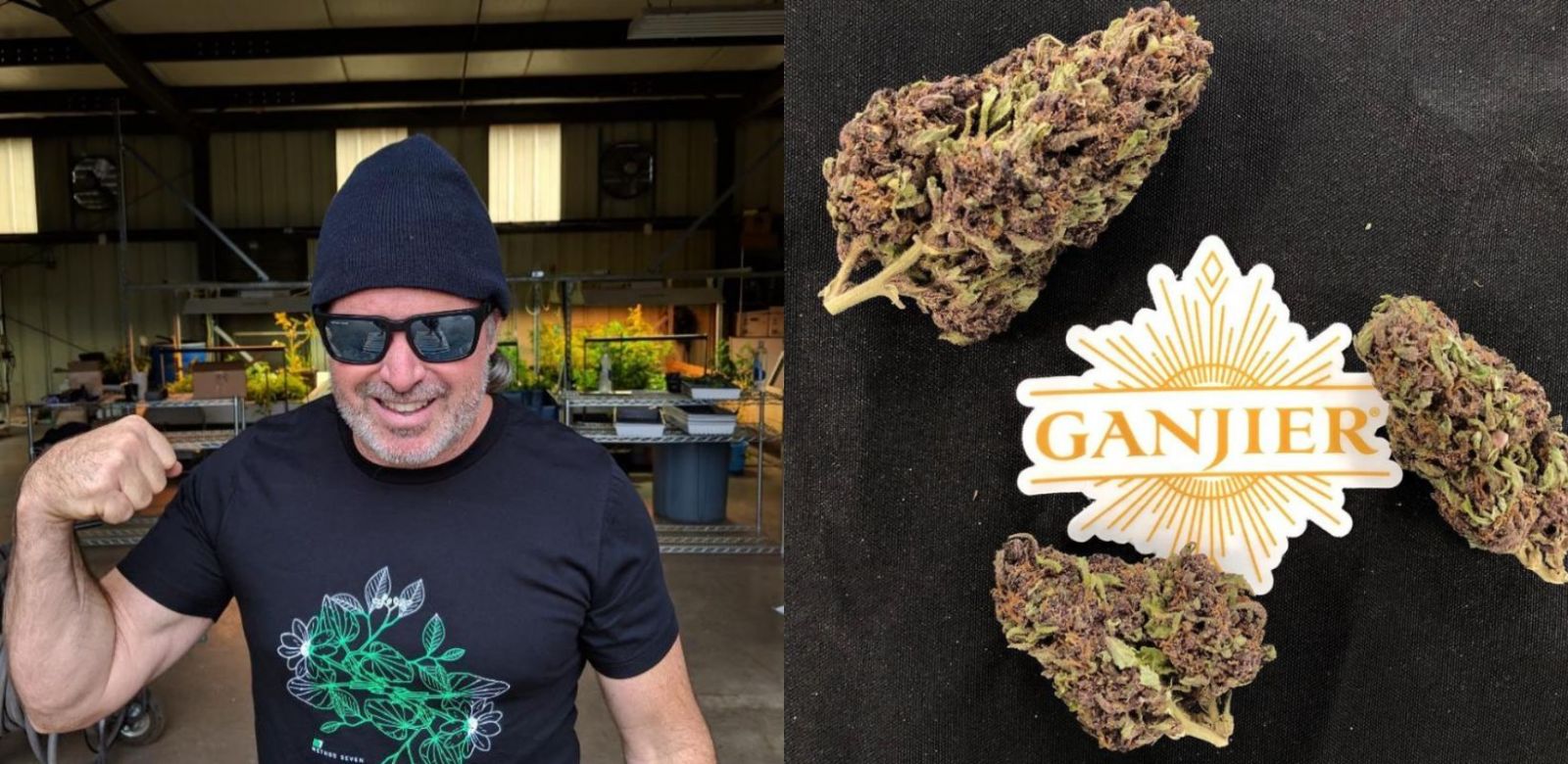
News
“The Mastermind Behind the Original Ganjier Concept”
Kevin Jodrey on Wonderland nursery, Cannabis Cultivation, and the Cannabis Sommelier Program- Ganjier.
Kevin has over 40 years of experience in the cannabis sector. He's one of California's most well-known growers and a globally recognized cannabis specialist, credited with developing and expanding the modern cannabis movement. Kevin is fascinated by the search for unique, desirable, and marketable traits as a world-renowned ganja genetics hunter. Kevin is the co-founder of The Ganjier program, owner of Wonderland Nursery, and the creator of Port Royal. He's conducted discussions at universities, judged the Emerald Cup, and advised National Geographic and A&E on cannabis-related educational shows. He has also been featured in the New York Times, a Pulitzer prize-winning Washington Post article, countless other articles, books, podcasts, and television shows. He is guiding the industry as it transitions to the Clean Rush – the sustainable movement of regenerating the land naturally through cannabis cultivation.
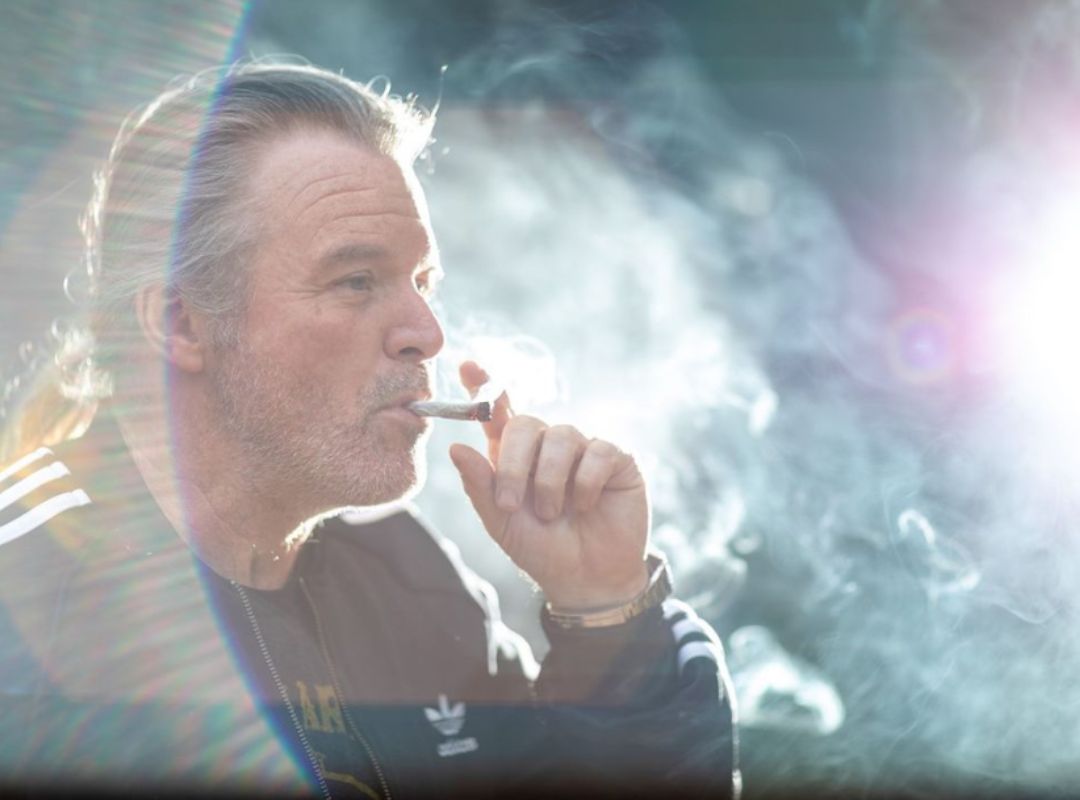
Source: Ganjier
[[relatedPurchasesItems-36]]
Hi Kevin, you're a well-known grower and an internationally recognized cannabis specialist, you have also judged cannabis competitions like Golden Tarp and Emerald Cup. Can you tell us about yourself and your background? How did you get started in the cannabis space?
I was exposed to cannabis in 1978. And I spent the next 43 years in the industry. So my story's long, but the main point is that even as a child in the neighborhood, I noticed that people who consume cannabis and people who were involved in the sale of cannabis were unquestionably happier than most that weren't. And it just made me interested in this substance that was so taboo at the time. I've never stopped being interested, and to this day, I'm still driven forward continuously. Constantly curious about something utterly fascinating to me.
What stood out for you about the cannabis industry more than the other industries?
Well, prior to that, it was an adventure as much as it was a job, but we would say that over the last 15 years. The reason why I stuck with it for so long was that cannabis had diversity in the participants. Cannabis seems to attract the largest demographic, just the most diverse, extremely eclectic, unique, and wide range of participants. And it makes it a fascinating place to spend your time as an occupation. And so, even if it was just a hobby, the diversity of cannabis is easily equaled by the diversity of people who consume and cultivate it, benefit from it, and want to be involved in it. So it just makes it a positive experience.
What was your idea behind starting Wonderland nursery? Can you tell us a little about the CBD program?
The idea behind Wonderland Nursery was that there wasn't any location that allowed you to walk into a storefront and access genetics that were, I would say, current. And so what my desire was, was to be able to share a collection of plants that I had spent a lifetime acquiring, and that was extremely valuable, and to allow them to be accessed and grown by what we would say are regular people, normal people, people who weren't necessarily connected to the industry to the degree that individuals like myself were. And what I wanted was, awesome cannabis to be grown by everyone. I wanted there to be an opportunity for all people to be able to get access to stuff that was extremely powerful in its impact and be able to use it to benefit themselves in any way they needed. And in that regard, it was just an utter, complete success. We were able to bring the genes into the public domain, and we were able to put a tremendous amount of really exotic material into the mainstream. So, what we started having was an increase in expectations in general of what was quality and the fact that no one should be precluded from having access to it.
The CBD program was, we were at work, myself, Pedro, and one of our other employees, Luke, and we were talking about the fact that you know, with cannabinoid medicine, you are limited by the cost because insurance doesn't pick it up. And so what we realized was that, and yet, we have to remember this was at the beginning of the entire CBD era. So this was when no one knew what CBD was. But we did because we had been involved in all these early trials. And so we had all this experience working with medical professionals and researchers at the very beginning of CBD education. And we knew that if we could create a situation where people could access genetics that was CBD dominant, it would be an incredible benefit for all of the cannabis because it would take people who weren't necessarily seeking solely psychoactive benefit and create benefit, thereby creating the parity that cannabis needed so that it was a positive product for everyone, not just a specific group who wanted to get high. They didn't understand that getting high was a state of mind. And the way you had been framed for so long in the drug war made it look like everyone who consumed cannabis was somehow subpar. And what we knew was that wasn't the truth. And we wanted the ability to be able to bring this product forward in a way that showed what cannabis was was a super product and that the people were good as well. And so what we agreed on was that we were going to use the success of the nursery to subsidize the CBD project. From Wonderland nursery. And we gave away literally millions of dollars of plant material for years to feed the system to give people who are in need the empowerment to be able to create their own medical journey. So that they weren't limited by finances, that the medicine would be able to have them maybe fight even if it was only for an extra month of life. Some of them, you know, were most definitely terminal.
But we were trying our best to understand how to function almost like a walking hospice where people walk in and you provide them with the support and maybe just some of the validation that they're still human as they fight for their lives. It allowed us to be part of that process. And it was profound and it changed my whole perspective on medical cannabis in a way that impacts me to this day. Homeopathic medicine needs to be made available to people at a level that is instantly accessible and not price-dependent.
Can you take us through the cannabis growing/cultivation process?
Sure, it depends on how we begin. But let's say, well, we'll start with a seed. And so one might acquire a seed from someone who's a seed maker, or you might create the seed yourself. Just like with any other agricultural crop, we would take the seed and we would germinate it, which means we would start to activate the enzymes in the seed and start to create the living life process and have the seed emerge into a seedling, and from there, we'll even say that this particular seedling has been feminized, which means that it's only a female technology that comes from cucumbers. So this way you don't get seedless cucumbers, but they've figured out how to do it in cannabis. And so it allows us to create only female plants. So in this story, we'll have a feminized seed that we've germinated that's grown into a plant. We'll take it and we'll put it in its location where we decide we want to have it. Maybe it could be indoors, you know, in a tent in your garage, or it could be in your backyard, or it could be on a farm. So the location determines what type of plant you would use. Some plants don't do as well in certain locations as others, so you would match what plant you were growing with your location. And then you would also ask the question, "Is it for my consumption or is it for sale?" And if it's for sale, then you would make sure you pay attention to what you were growing, so that it wouldn't be able to enter a market. And if it was for your consumption, you would determine what you were seeking.
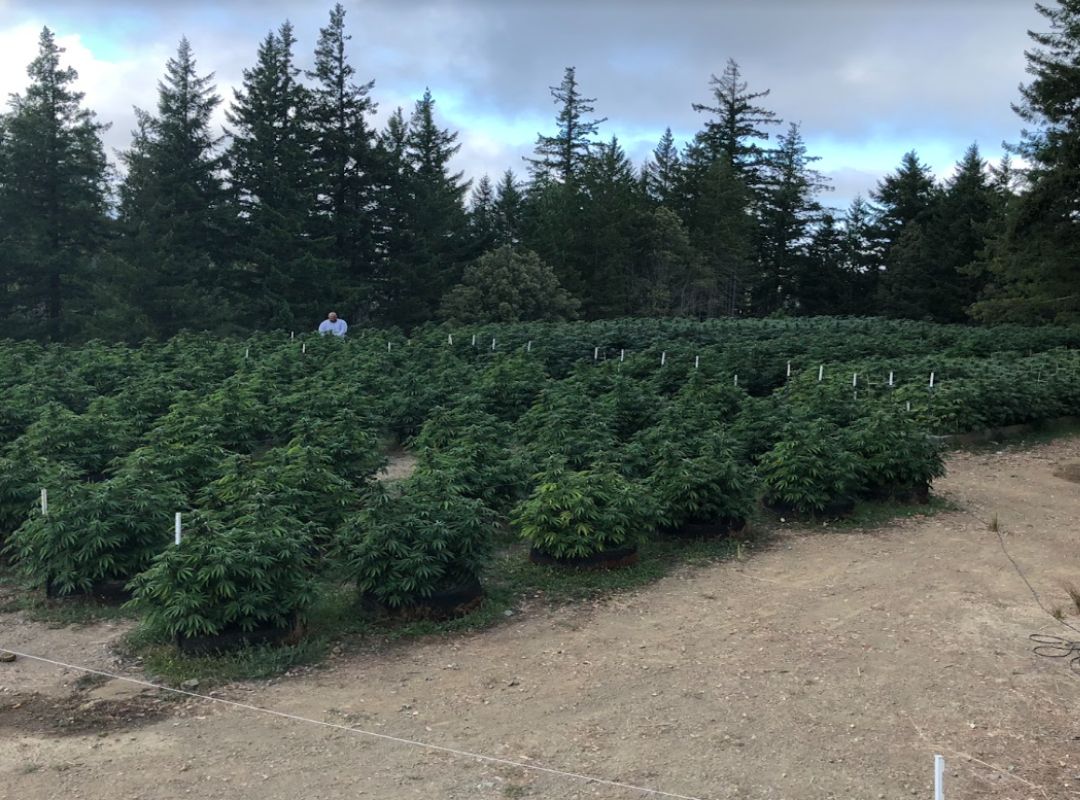
Source: Cannabis
Am I looking for something to help me with a sleep aid? Do I want something to help me with appetite suppression or to increase my appetite? Do I want something to help me? Deal with some of my ankle pain? Do I want something to help me calm down when I feel anxious? Do I want something to stimulate me so I can feel a little bit more energetic, a little bit more alive? All those considerations the user grower asks, and you then match what you want with what works in the environment you're choosing. And you go through the growth process where you're growing the plant into, we would say, if we think about a plant and a person, we would say a person lives 100 years, so we'll say we'll use that as a timeline, and then an end. So the plant would be going through its first 20 years of growing into an adult and then for the next 80 years, citizens' death. And so we would allow this plant to grow and then induce it to flower.
And so cannabis plants are photoperiod dependent, which means that they're triggered by the light cycle duration of the night. So we then change the night cycle to make the plant believe that it's in a full-time season. But we can do it with lighting and in the outdoors, it would do it naturally. And we allow the plant to go through its flowering cycle. And when we've reached fruition, we can tell by the fullness of the Brax that the BRAC saw the reproductive organs that the plant produces chasing pollen, hopefully, to reproduce, and if it doesn't catch any pollen, it continuously thickens and thickens until it reaches a point where it dies. And we want to take it right into that far range. So what we get is the full fruition of the plant, and in that, we get the most complete production of cannabinoids and terpenes and flavonoids and all these other incredible secondary metabolites that make cannabis so interesting to us as humans.
How do you ensure that the facility adheres to the state's policies on cannabis growing?
Well, when you put together your permit application to create a license, you have to have criteria set by the governing bodies on how you're going to operate. And so you already have a protocol in place that says "these are the things that I'm going to do and they have to fall in line with the regulatory body or they won't issue the permit." So you're already trying to make sure you're in compliance before you ever actually start cultivation and I think that what's important is that these regulations are extremely onerous. There's no other agricultural crop that has anywhere near this level of inspection and constant quantification of what's taking place with every single gram and it's almost so complicated that it forces you to bring in a compliance specialist into your workforce. So most of us have compliance specialists that help understand what the compliance is so that we're then able to operate the nursery or the farm or the next light whatever operation dispensary is just distribution under those auspices, and it's a work in progress continuously because the regulations aren't streamlined and it's a new industry.
And so they don't understand how some of these things are often redundant and how difficult it can be to do this in a manner that makes any sense. And so you work with the regulatory group to follow to the best degree you can, and then when you're given the chance to comment, you can hopefully influence them to some degree to look at this process in a more average manner. I think that in real life, it's odd but it's easier to get a license to sell machine guns than it is to get a license to sell cannabis.
Can you give us 2-3 business challenges you initially faced, growing cannabis, and how challenging was it? How did you overcome those challenges?
Well, when we first started growing cannabis, you know, in the past, the challenges were many because it had to be hidden. So when you're trying to be a professional cannabis grower in an illegal world, you're not able to bring forth your questions in a way that allows you to get an exact answer. And so you have to do a lot of research on other types of things to understand, meaning that you have to study other types of businesses and then take the basic information from what issues and solutions were used and how you can apply them to cannabis. And because you can, you know, we were so afraid to reveal anything for so long and for good reason. Because people get angry at you for any reason, and they tell the police, you end up going to prison. So you operate in this manner where you're working off of inadequate information. So some of the business challenges were, you know, how do you operate in a normal business context when cannabis is such an incredible, massive industry but there are no normal business contacts taking place? I think that you also have to learn that when we were initially in cannabis, we were all working in a cash economy. As in the norm, our relationships with banks and other entities were non-existent.
And so you didn't learn how to build relationships with those groups and also with the ideas of venture capital, meaning that, you know, the bank wasn't the only group to get money from, and there were individuals you could go to to get money if you could put a good enough business idea together and then bring a lawyer to protect you to make sure that your interests were protected, you would be able to function in that manner. And so, what you see is that the function of cultivating cannabis was never the issue where cultivation, instead of being a science in the past, was an art, and art and science both touch at some nexus. And it's two different ways of getting to something, and some people are very analytical. They work at it step by step. I would say that's more of a scientific approach. And some people just intuitively go to it, and that's more of an artistic approach. Both achieve the objective, and with cultivation, the art of cultivation allowed there to be a success that occurred, but with the business end of it, when you moved into the new world of business of legal cannabis business, this is where you saw most of the operators have problems. And for me, it was where I was worried we would have issues, and the way I dealt with it was that I started to do a lot of research on my own on just fundamental economics so that I would understand what drives a market economy. And I started to look at the situation from how I would approach this if I wasn't on cannabis. so that it would give me an education on how people were going to approach cannabis as they came in. Because people were entering the industry who were technically or theoretically, even truly our competitors.
You wanted to get out, understand how they were going to operate, and so I think a lot of it was probably problematic for most people in that world have detailed documentation, proven adjustments to make business improvements, and the way that normal business operates. It was never allowed to be present in what we did in cannabis because if you had any of these types of operations that were extensive or documented, it increased the level of prison time by a couple of years. So they call it a "mastermind enhancement." And so, the smarter you were with what you did, the more you were punished. And so the issue was, you know, trying to learn how to take the skills developed in one industry and then bring them forward. And for me, the way I got around a lot of this stuff and what I would recommend to others is that you have to always identify where you're weak by being honest with yourself and saying, "You know, if I'm in this situation, do I have these resources in any resource I don't have?" You have to start trying to at least understand the fundamentals of it so that you're able to realize who to reach out to. It's not that you can do all the operations as much as that you can do the ones you're good at and you find people who can offset your weaknesses and provide you with the support you need to get your vision realized.
What methods do you employ to inspect cannabis crops and determine their harvesting time? How do you ensure your products maintain high quality?
Well, when you're talking about, you know, harvesting cannabis, it's straightforward, you know, and the truth of it is that there was always this conflict of, you know, do we go by what are the signals we use? Is it that we have no more pistols? Is it that we have Resin that's changing color? Is it that we have BRAC size filling in? And, what it is, is about BRAC size, because that's the only thing that you can say is right. So is the coloration of the metabolites that reside within the trichome heads. They're active and they're moving. And sometimes it's there. They're at an ideal level. But when we say ripe, we're guessing there too, because we don't know you. You aren't doing a chemistry test. You're doing a visual test. But what we do know, though, is when we look at the BRAC to the cluster reproductive organs, when we've seen them fill out completely to the point where the plant can no longer produce any new tissue to create new embryos to seek new pollenization, then we know the plants have reached plant maturity and that's the one thing we can determine visually accurately. And so I think that going by BRAC maturity is the best way to look at it.
Well, you know, as a cultivator, you do your best to match what you can do, what your location can do, and what the plant can do with what's desired, and that creates a matrix, and in the middle of it's the solution that says, use this. And if we do that, that starts us off on the right foot because it means that the plant should function at its optimal. The operation shouldn't have to struggle, you shouldn't have to struggle, and the market should accept it if it's been done correctly. So what that means is we can just focus on the cultivation more than the marketing of it. And what we want to do is to make sure that we're allowing the plant to go through its cycle in a relatively unscathed manner. And it allows the plant to be able to do what it does naturally. We don't do anything the plant produces; we alter what the plant does. And sometimes we think we're doing a good job and we're not. Sometimes we think we're doing a bad job when the plants' response is positive.
But the bottom line is that plants will survive if horrible conditions are met and they're allowed to continue breathing and transpiring freely throughout their lives. They produce all the metabolites they need. for all purposes. If all of the fundamental needs are met, the plant does the rest. And if we allow that selection, I keep talking about this matrix of location, meaning you know where you're growing it with style, and what type of plant you're using, and what your abilities are, and you match everything together, you end up getting something that starts with really high potential. And our job is to just allow the plant to go through its lifecycle and achieve it.
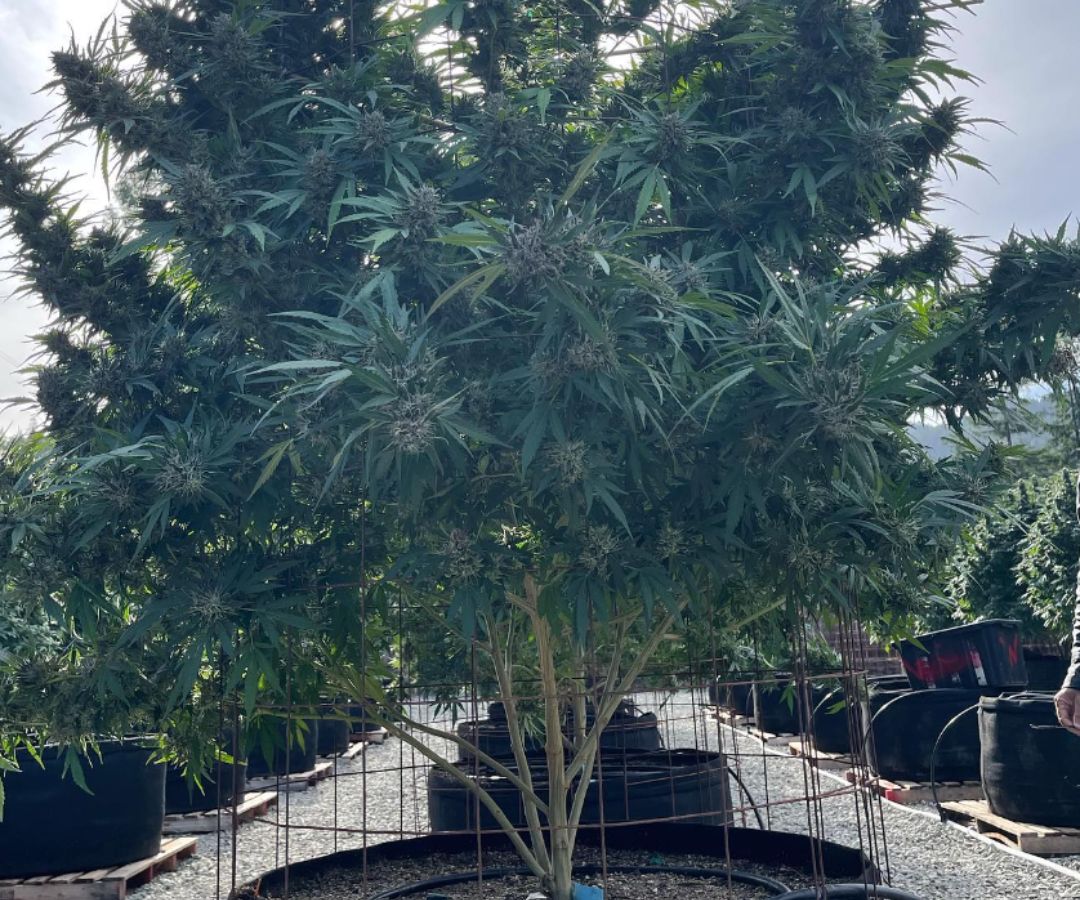
Source: Cannabis Plant
And then after the lifecycle is where we see most of the problems, because once it leaves the farmer's hands, the farm's hands, and it goes into the supply chain, depending on how it's held in the supply chain. It has a radical impact on what the customer receives in terms of quality. If we can think of cannabis as microgreens, and if we heat microgreens in the car on the way home, they're micro mush when we get them into the kitchen. And that's similar to cannabis. When we heat cannabis but we dry it out excessively, we can never recover the qualities. And so what you find is that producing excellent cannabis is one part of the mission, and then the other one is trying to find the right distribution supply line partners so that the product doesn't deteriorate throughout its cycle until the end of consumption.
I have recently written an article on Ganjier- The cannabis sommelier program. What prompted you to join the Ganjier council? Do you think people must know how to evaluate the genuine quality of cannabis flowers and concentrates? How do you think it is beneficial?
You will prompt me to join the gunners. More than anything, the GA Council was the idea that it was a 100-year program so that you could create something that allowed for the beginning of the quality assessment. And the idea of getting people to become comfortable with cannabis enough to become familiar enough with cannabis so that they can start to look at it in a very objective way and say, hey, this is better than that for this purpose for me. And because of that, it allows you an opportunity to start to highlight two key points in a gradient, and one of them is, what is the best quality product, and how does one determine it? And then, what is the best quality product for the price? So what we have is that we can be able to highlight things that are affordable for the masses but aren't, in any way, a negative product where we would say they are of a lesser grade. And so I think that there has to be, you know, a standard that's just damn good. And that is what everyone should be able to access. And then the levels above them become very, very definitive, and they're also very hard to attain, and they're not attained by a spokesman. They're not attained by a cool box. They're not attained by a cool story. They're attained by a phenomenal product. And the idea of how you determine that and how we create a common language so that everyone can agree is the way we can look at it. So that it lets everyone become educated in a language so that no matter where they go in cannabis as we move forward, when they go to a store, when they go to a location, and they say a thing, it'll mean the same thing. Connotation and denotation are so far apart.
Cannabis that it makes it impossible for people to go to a store and buy what they want. There's dissatisfaction to the degree that you have an illicit market that is thriving because the prices are better. The delivery is quicker. They run smaller batches, so you get a more unique material. And you're in a situation that makes it very difficult for legal cannabis to function. So, what you need to do is start drawing clear lines so that when someone says, hey, if I'm going to make a choice, I can make a choice and say, hey, this is a pretty good deal. This is $35 for cannabis and its apps. It's a reasonable amount of cannabis for 35 bucks, and I know it is completely cleaned and tested because I have a test report on it. So you're able to make decisions that are good for you as the customer. And that's what quality assessment starts to do. It starts to allow you to bring forth the deals. And it also starts to allow you to look into the Kraft farms that produce small epicurean batches and find, you know, how do you bring those forward? How do you allow the best product in the system to be seen when the smallest farms produce the best products, which means they have the least amount of marketing? So the ability of people who want to buy cannabis to understand that there are different levels of cannabis is important. And that it's not in any way to create elitism. It's just to state, "Yes, there is ultra-premium." And this is how we can define it. And these, then, are the gradients down to were premium and price intersect so that you get the best deal.
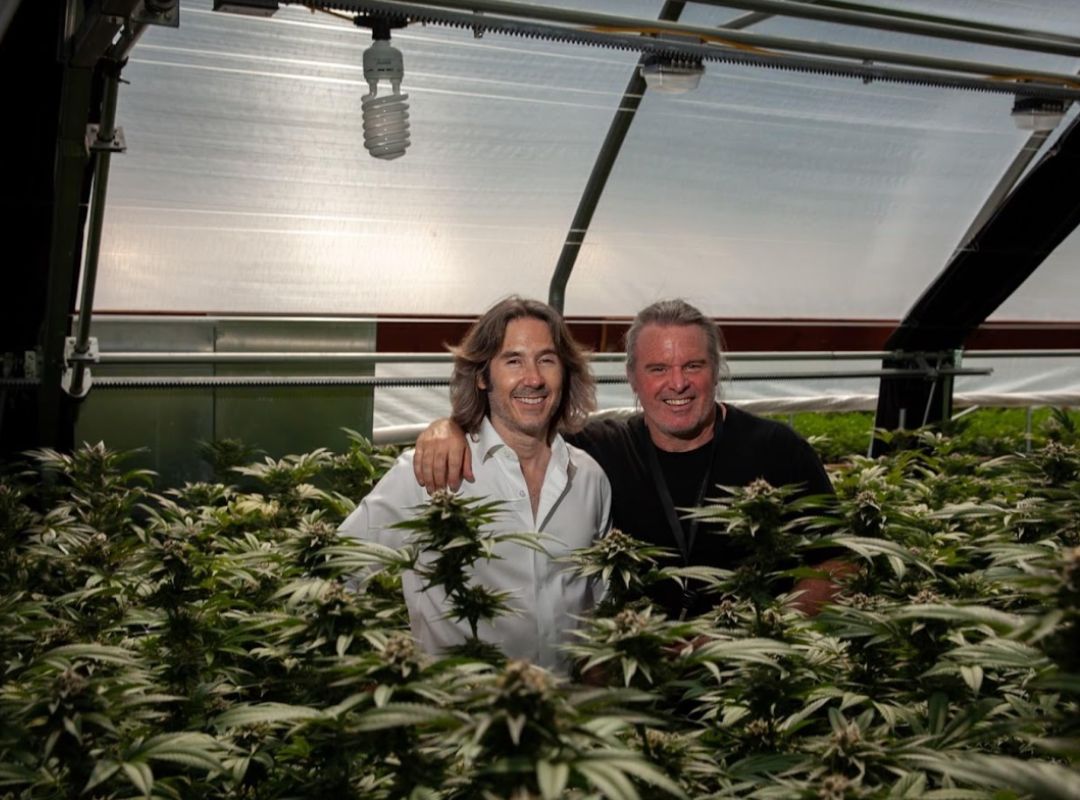
Derek Gilman, Managing Director with Kevin Jodrey, Founder of Ganjier
And for me, that is the only way that you're going to be able to get people to benefit from legal cannabis sales is to make it simple to make it accurate to create the information the masses need so that they can make the choices, and it's not even to shut down the illicit market at all. It's just the fact that if we want to see legal stores succeed, then what we need to do is make them attractive to the people who purchase from them, not force them into the situation. But to give them the option and say, hey, if you come into a store, through a quality assessment, we know that these three products are unbelievably good. And these seven products are awesome for their value. And so now you can make an intelligent purchase, you're empowered, and when you go to another store, you can use this information to help you shop and just live your life in a better way as a cannabis consumer. So to be able to be part of that was just epic for me.
You've also made a lot of cannabis-infused green drinks. Could you tell me more about this? How do you think the cannabis beverage industry has evolved over the years?
Well, I would say the cannabis-infused drinks or more. I was heavily involved in cannabis juicing. And so, what we did was we were involved in all the original CBD trials, and cannabis juice was how that was originally meant to be served to the patient. And what I saw was this incredible amount of anti-inflammatory relief that occurred because of this. And so we would have. We would make the juice and I would go on the radio and I would reach out to all the organic farms, including my own, and we would then gather all the male plants from breeding projects and then all the fresh organic leaves from the leaf things and then I would have it come in. We would hold it cold. We had a lab that could do almost, you know, a one-day turnaround on analysis. And so what it would do is it would allow us to be able to take a bulk leaf and do a quick analysis to make sure that we didn't find any kind of contaminants in our sample. And then we would have a team of local ladies come in and help us juice, and we had a large number of commercial juicers.
The ladies would make the juice and the ladies were just fantastic and they were, I would say, herbalists or had locals that had been around cannabis in this holistic manner for years and they were just really caught up with what we were doing, which was trying to provide this, you know, for free, and it just was this synergistic time. And what we were able to do was we were able to have my girlfriend come up with some really good recipes to mix the juice with so that some of that heavy chlorophyll, the green taste, would be washed out of your mouth. And it was just a successful time. It allowed people to be exposed to cannabis medicine. It allowed them to do it for free because it wasn't psychoactive in any manner. It wasn't threatening or fearful for anyone. And we were able to get such incredible support that we were able to get the community involved in it. So it was the very beginning of, you know, cannabis being consumed in various ways on a larger scale acceptance. But after that, we put the information out and we provided the genes to people, but I never got into running any type of infusion. After that, I think someone might have patented some of the technology that we came up with. But I wasn't involved anymore after a point. I wanted to be able to get the information out to get the genes out and empower people to do it.
And at that time, cannabis was far more grassroots in that farms could operate with a much higher level of freedom. And so, with the change in regulation, it makes it extremely difficult to do any of this in any manner that is cost-effective for the farmer or the patient. So there was a golden era in that period and we were a big part of it. And I'm grateful that I got the opportunity. But today, you know, there's a phenomenal number of infused drinks that are coming out, and I think it's awesome. You're seeing, you know, a tremendous change in technology with nanotech to get the solubility and the availability so that the release rate of the product is quicker and more consistent so that you can better time when the effect is going to kick in and how long it's going to kick in so that you're able to, you know, use these tools to benefit you as well. I think for a long time, edibles were being used as, you know, when you used edibles, you were rewriting the edible till it was done. And now I think what you have is the ability to use edibles in a manner that is just far, far more digestible. And I think with the drink end of it, some of the flavor combinations are coming out that are incredible. I was just talking to someone about Warren Bobo's Klaus line and he said it was just fantastic.
[[relatedPurchasesItems-37]]
According to you, What are some of the tools that modern cannabis growers should use to stay competitive?
Well, I think what you have now is that you have some really interesting opportunities as a cannabis cultivator that you don't have to hide, so you're able to reach out and go into other agricultural worlds for insight and how they operate. And I think that the ability to start taking a look at the ideas of plant empowerment, which is how do we keep the plants breathing? How do we keep this plant moving? CO2 and liquid Oh to through these leaves. The ability for that to occur gives us a healthier plant, and what we have now is more science to help us understand what's taking place in the plant's daily life and the ability to use sensors to help us understand where the plants are going through stressful periods and how many of those periods have been created by us as the cultivators. So it starts to allow you to correct operational errors and it starts to allow you to take things that you know through insight from actual application over time and then put some science behind it so that you get some real understanding and I think that that is the only way that you can function, I think in any industry, is just to stay abreast of what's taking place around you.
And when it becomes essential to change, you're able to make the change. We know that change is the only constant thing, but the ability for that to occur, the ability for you to be able to gather this information has never been more readily available. So I think that you know, you have to dive into some of that. I think that some of the information on the organic end, as we start to drive into more microbial intelligence, you know, what type of consortiums work in what way and how do we utilize that to maximize uptake and keep the plants in a healthier state of homeostasis balance? The ability for us to start to understand the entomology, you know, the insect populations that create these relationships with plants and how we create homes for them so that they have things to eat and live while they're helping the cannabis plants and how we identify the new pathogens, so I think what you have is you have some really interesting touches of the modern world of science woven into the historical aspects of growing cannabis. And they're both needed because science does everything, but ultimately, science and what consumes the product is a human, and humans are kind of picky. So I believe that as we begin to weave the hands of a man with the mind of a scientist, we will be able to create a much more reliable method of delivering a high-quality product to the customer.
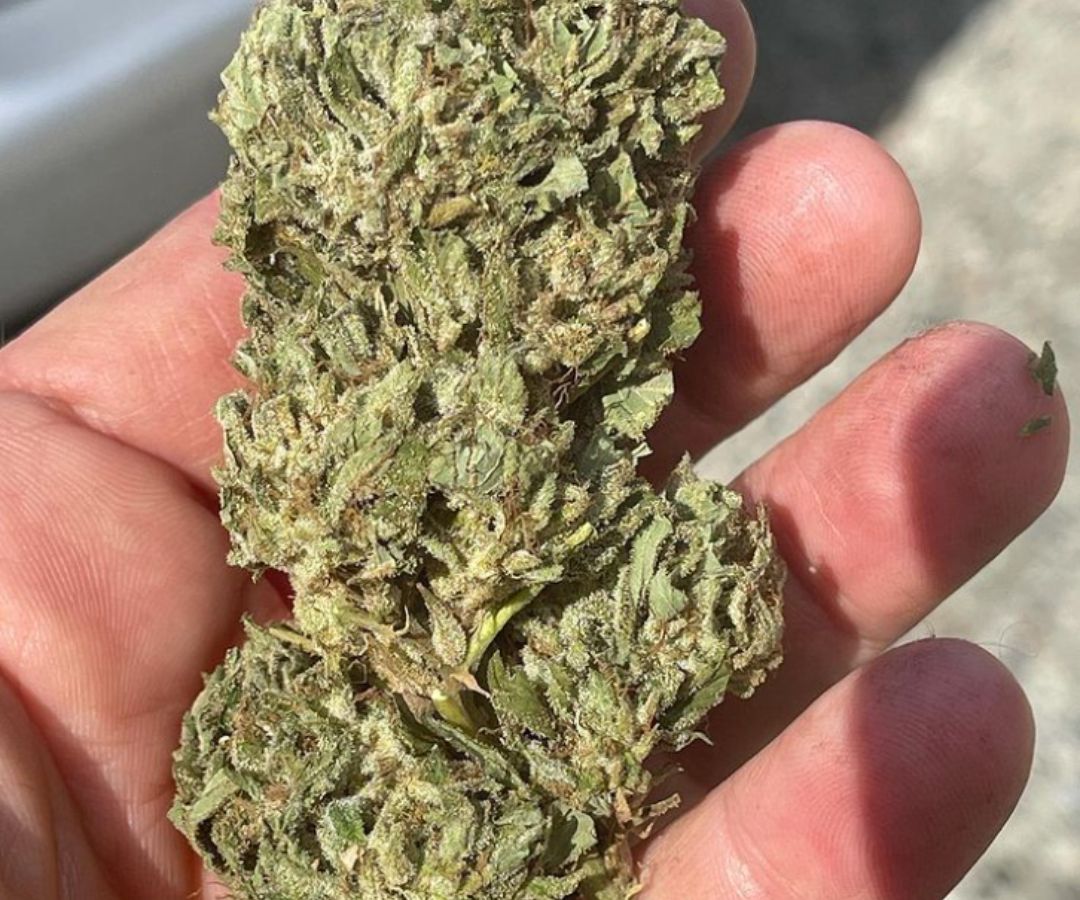
Source: Cannabis
Lastly, how would you define truly high-quality cannabis?
And you know, when we look at that, how do we define truly high-quality cannabis that has a definition that we can agree on as a group, where we can state that these factors combined create the total, but I'd think that the thing that matters more than anything to most is whether it made them feel the way they wanted to feel? And if it did, then that's a high-quality result. And you can't get around that one thing that ultimately when an individual is satisfied with the experience in a manner that makes them want to go back and purchase it again. That's a high-quality experience.



